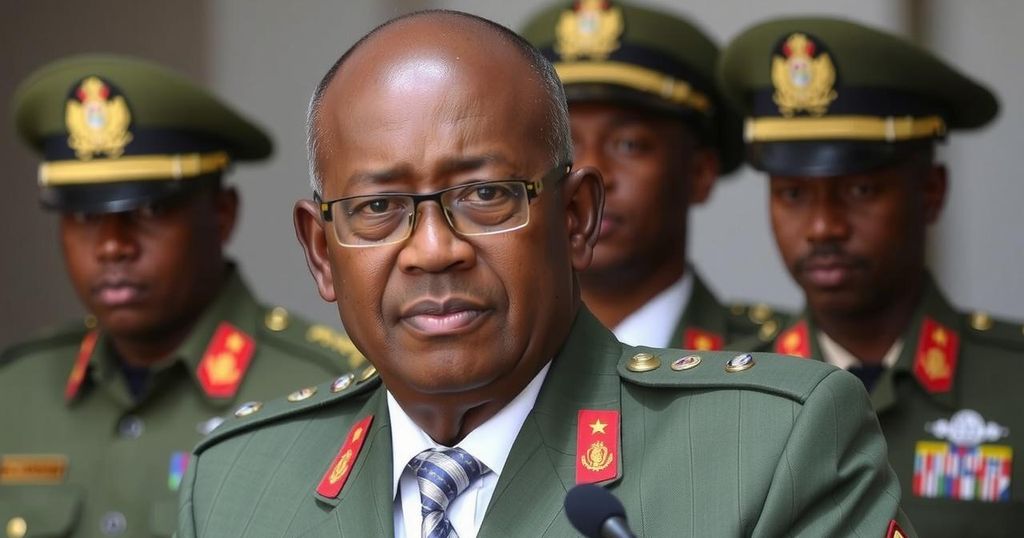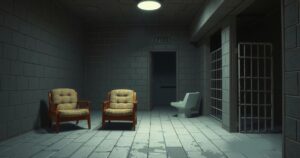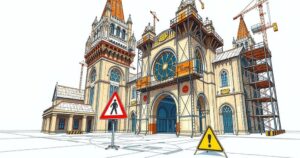Amnesty International Calls for Investigation into DRC Officials for Humanitarian Crimes

Amnesty International has called for an investigation into a former governor and two army officers in the Democratic Republic of the Congo due to their alleged roles in a violent crackdown on protests last year, resulting in over 56 deaths. The rights group has named Lt. Gen. Constant Ndima, Col. Mike Kalamba Mikombe, and Maj. Peter Kabwe for possible crimes against humanity, highlighting systemic issues within Congolese security forces and the urgent need for accountability.
Amnesty International has intensively urged for an inquiry into the conduct of a former governor and two prominent army officers in the Democratic Republic of the Congo (DRC) concerning their potential involvement in crimes against humanity during a violent suppression of protests in Goma last August. The protests, spearheaded by a group opposing the U.N. peacekeeping mission in the region, resulted in at least 56 fatalities and numerous injuries, stirring outrage from human rights advocates who have condemned the security forces’ actions as systematic and premeditated. The organization has specifically named Lt. Gen. Constant Ndima, the former governor of North Kivu, Col. Mike Kalamba Mikombe, head of the Republican Guard, and Maj. Peter Kabwe, who led Special Forces, as individuals warranting investigation.
Eleven months after the deadly crackdown, Amnesty International has spotlighted the failure of the DRC government to hold accountable those responsible for the violence that occurred during the protests. The unrest reflects a broader discontent among citizens regarding the effectiveness of the U.N. mission, known as MONUSCO, which has faced criticism for its inability to protect the populace from ongoing armed conflicts. Even as some military personnel face punishment, the organization demands a reevaluation of the investigations in light of their alleged discretion regarding the events that led to the massacre.
Amnesty International’s reporting on this incident highlights the significant human rights challenges ongoing in eastern Congo, where various armed groups battle for control, displacing millions and exacerbating humanitarian crises. The fatal incident in Goma not only signifies governmental accountability challenges but also accentuates the need for comprehensive reforms within the Congolese security apparatus to prevent future breaches of human rights.
The situation in the Democratic Republic of the Congo has been marred by conflict and instability for decades, influenced by a plethora of armed groups vying for political and territorial dominance. The U.N. peacekeeping mission, MONUSCO, was instituted to stabilize the region and protect civilians, yet persistent violence often incites public discontent, leading to protests regarding the effectiveness and presence of foreign action. The violent response to peaceful demonstrations against MONUSCO in Goma serves as a catalyst for renewed calls for accountability from the government and military personnel, reflecting a broader struggle for justice by the Congolese people in a fragile state of governance.
The call for accountability from Amnesty International reflects a crucial moment in the Democratic Republic of the Congo’s history, emphasizing the need for transparency and justice in light of human rights violations. As the international community observes, the DRC government faces pressure to reopen investigations into the August 2023 massacre, ensuring that all perpetrators are held accountable for their actions. This imperative for justice not only seeks to address past grievances but also aims to restore faith in governance and human rights protections in a region that has endured prolonged violence and instability.
Original Source: abcnews.go.com







